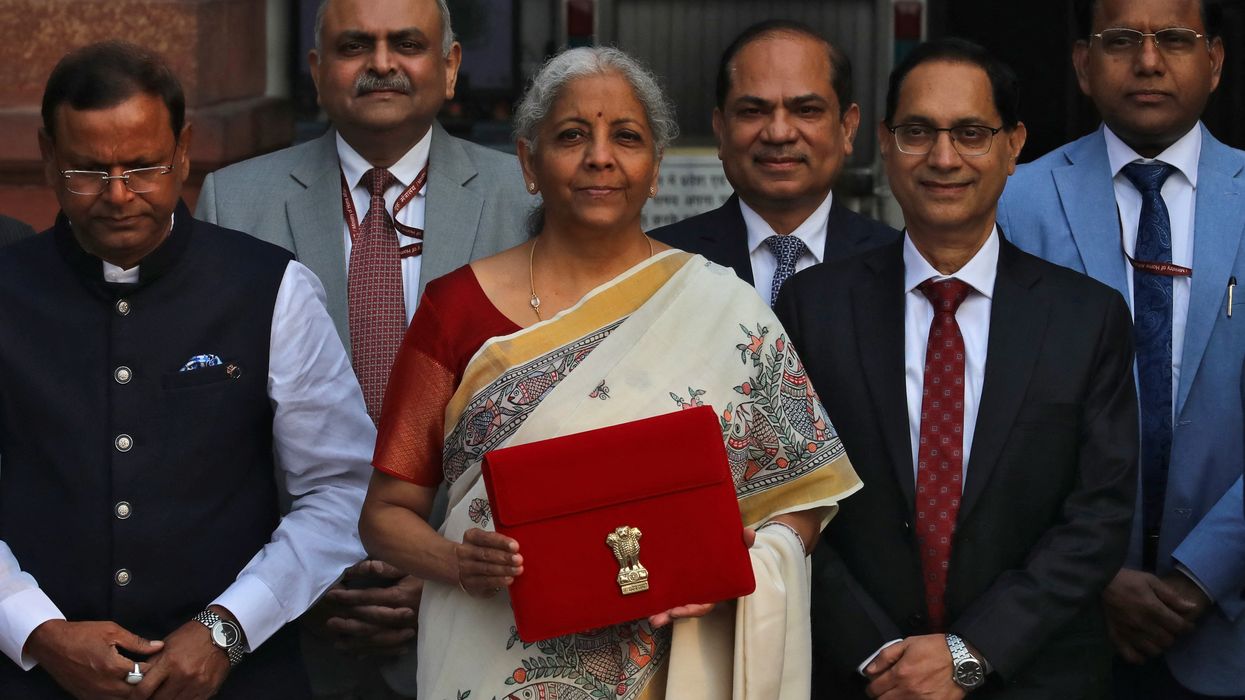INDIA will focus on increasing the spending power of its middle class, encouraging private investment, and promoting inclusive development, finance minister Nirmala Sitharaman said on Saturday while presenting the annual budget.
Sitharaman said the budget for 2025-26 includes measures for the poor, youth, farmers, and women. She also highlighted "transformative reforms in taxation."
Key announcements from the budget:
Relief for middle-class taxpayers
- Raises the nil tax slab threshold for income tax payers to ₹1.2 million (£11,200) per year
- Proposes changes to income tax slabs and rates to benefit all taxpayers
- Maximum tax rate of 30 per cent raised to incomes of ₹2.4 million (£22,300) and above under the new tax regime
- Plans to introduce an income tax bill in parliament to simplify tax rules and reduce litigation
- Analysts say tax cuts may boost consumer demand
- Expects nominal GDP growth of 10.1 per cent in 2025-26
- Fiscal deficit expected at 4.4 per cent of GDP in 2025-26, down from a revised 4.8 per cent in the current fiscal year
- Gross borrowings estimated at ₹14.82 trillion (£137.9 billion) for 2025-26
- Net borrowings estimated at ₹11.54 trillion (£107.4 billion) for 2025-26
- Total revenue receipts projected at ₹34.20 trillion (£318.3 billion) for 2025-26, up from ₹30.88 trillion (£287.3 billion) in the current fiscal year
- Net tax revenue receipts for 2025-26 expected at ₹28.37 trillion (£264.1 billion)
- Total budget spending for 2025-26 estimated at ₹50.65 trillion (£471.4 billion), compared to revised spending of ₹47.16 trillion (£438.6 billion) in 2024-25
- Revised spending target for 2024-25 lowered by ₹1.04 trillion (£9.7 billion) from the initial estimates
- Capital spending target for 2025-26 set at ₹11.2 trillion (£104.2 billion), up from the revised ₹10.18 trillion (£94.8 billion) in the current fiscal year
- Proposes to increase the foreign direct investment limit in insurance to 100 per cent from 74 per cent
- Focus areas of the budget include taxation, power sector, urban development, mining, financial sector, and regulatory reforms
- Plans a six-year mission to boost pulses production
- Launching a five-year mission for cotton production
- National Manufacturing Mission to be set up to support the ‘Make in India’ initiative
- Credit guarantee cover for small and medium enterprises increased to ₹100 million (£930,500)
- Fund of funds to be created for start-ups with government support of ₹100 billion (£930.5 million)
- Five national skilling centres to be established to improve manufacturing workforce skills
- ₹1.5 trillion (£14 billion) in 50-year interest-free loans to states for infrastructure development
- Announces a Maritime Development Fund with a corpus of ₹250 billion (£2.3 billion)
- Plans an Urban Challenge Fund worth ₹1 trillion (£9.3 billion)
- Regional air connectivity to be expanded to 120 new destinations over 10 years
- A policy for critical minerals development to be launched




